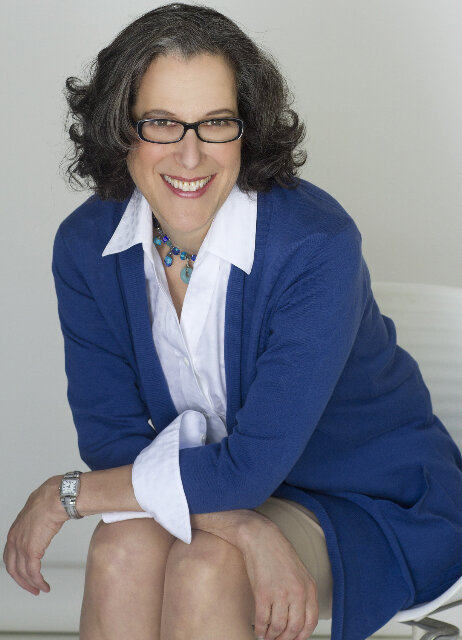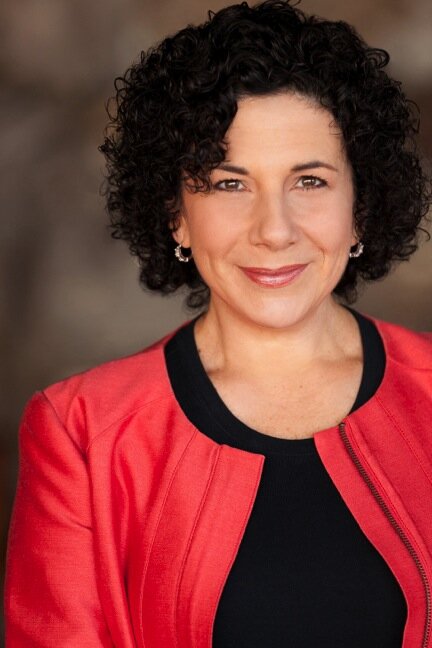Jane Pollak "Ask the Expert" interview about Possibility ThinkingThe “Ask the Expert” interview series connects you with industry thought leaders and gives you the opportunity to participate in inspiring conversations. This year we’ve spoken with Dorothy Breininger about success, Dr. April Lane Benson about enlisting help, Leslie Josel about motivation, David Allen about time management, Peter Walsh about clutter, Sheila Delson about letting go, Laura Berman Fortgang about next steps, Judith Kolberg about change, and Sue West about fresh starts. This month I’m thrilled to bring you business coach, Jane Pollak, to share her insights and experience about possibility thinking.
While Jane and I have never met in person, I have been following and hearing about her for many years. I have several colleagues that rave about her unique ability to help entrepreneurs clarify, focus, and connect. When I contacted Jane to invite her to be interviewed, she generously accepted. You are in for a treat. My deepest gratitude goes to Jane for taking the time to join us. Before we begin, here’s more about her.
Jane Pollak is one of the Northeast’s foremost coaches of entrepreneurial women and a living example of how to turn a passion into a thriving business. Jane’s story is an odyssey that led her from remote craft fairs and customer rejections to an invitation to the White House and appearance’s on NBC’s Today Show. The lessons Jane learned along the way led her to share her story and give advice to struggling entrepreneurs, travelling the country and beyond. Her book, Soul Proprietor, is not only inspiring and motivating for the entrepreneur or small business owner, it is a handbook of lessons that one could apply to the business of everyday life. You can connect with Jane on Twitter, LinkedIn, Facebook, blog or website.
Linda Samuels: You’re an expert in helping women entrepreneurs “achieve uncommon success.” What are some ways to create an environment that nurtures possibility thinking?
Jane Pollak: It’s obvious to everyone looking on what lights you up. But we rarely give ourselves permission to listen deeply to what we really want. Sharing your dreams and visions with one or more other like-minded souls is like putting Miracle-Gro on your garden. It will flourish. Having others reflect their belief in you back to you in a group is powerful.
Be aware of how you language your vision. Eliminate words like “should” and “try” which, subtly diminish our intentions.
Linda: What might get in our way?
Jane: Other people’s needs. Women are born nurturers and caretakers. Johnny forgot his violin. Your elderly mother needs to have cataract surgery. It often falls to you to take these tasks on, but it may not be necessary, and it most definitely CAN be done on YOUR schedule. I’ve had clients who are desperate to write, create, you fill in the blank, and are unable to put two hours together in their day.
At some point, you need to stake a claim for yourself. Some confuse self-care with being selfish. I don’t adhere to that. I believe that the example you set for your families, friends and colleagues is worthy of the risk it takes to do that. Johnny can experience the pain of his forgetfulness, and you can take your mother for surgery on a day that works for you. Once you get into the habit of scheduling time for YOU, there’s no turning back and it becomes the norm, not the exception.
Linda: What are some techniques or questions to ask for imagining possibilities?
Jane: A typical one that has remained evergreen for that reason is: If money, health, location and family obligations were not an issue, what would you really like to do? Or, what would you do if you knew you couldn’t fail?
Many women will not even allow themselves to fantasize about possibilities for fear of failure or fear of success. It’s a loaded question and requires a lot of personal development work to get there.
A talented coach will be able to deeply explore your vision once they’ve broken through the layer(s) of resistance. What blocks us is not lack of talent as much as putting many obstacles in our way.
Linda: What have you observed about the relationship between letting go and possibility thinking?
Jane: They are mutually beneficial and must co-exist. It would be challenging to have possibility thinking without letting go…of preconceived ideas, demands, guilt, worry, etc. If you want to paint a great masterpiece, you may have to let go of having an immaculate household. I heard a wonderful saying once that has stuck with me for nearly 20 years: Housework, if done correctly, will kill you!
Linda: What has been your most significant personal challenge around embracing possibilities?
Jane: Getting divorced at age 63 after a 38-year marriage. While I was comfortable knowing I could support myself and be of value for another few decades, I am a relationship person and had to embrace the possibility of finding love in my 60’s—which I have. My self-talk had to be tamed – Men are only looking for younger women. All the good men are taken. Etc.
Linda: Is there anything else you’d like to share about possibilities that I haven’t asked?
Jane: Yes. I could not, nor would I advise anyone else, to do this at home alone! Support is vital in every aspect of our lives. When it comes to possibility thinking, it’s what will get you through the rocky road whether it’s someone to hold your hand, have your back or encourage you to continue to follow your dreams. They can get lost very quickly if you venture out alone.
Thank you, Jane for sharing your wisdom about possibility thinking. There are so many riches here including the uplifting words such as “flourish,” and “vision.” I love your calls to action like give yourself “permission to listen deeply,” share your dreams with “like-minded souls,” be mindful of how you “language your vision,” "stake a claim for yourself," or learn how to tame your self-talk. These ideas exude possibilities.
I invite you to join Jane and me as we continue the conversation. We’d love to hear your thoughts about possibility thinking. Which ideas resonate with you?











